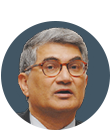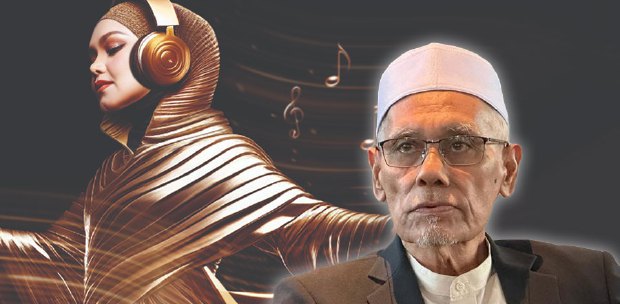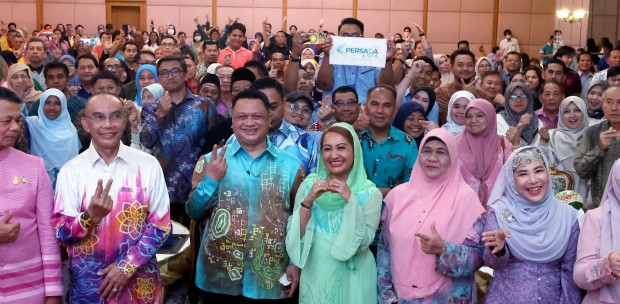WHOEVER wins the presidential election in Turkey today will preside over a new governance system that will see its transformation from a parliamentary first-past-the-post model to an executive presidency, which some stress puts too much power in the hands of one person.
This follows the narrow approval by 51 per cent to 49 per cent to transform the political system from a parliamentary one in a referendum called by President Recep Tayyip Erdogan last year.
Turkey’s 59 million or so eligible voters have their work cut out for them today. For the first time in decades, they have a real choice in six presidential candidates, including Erdogan, leader of AK (Justice and Development) Party, Muharrem Ince of the Republican People’s Party (CHP), Meral Aksener of the IYI (Good) Party (the only female candidate), Selahattin Demirtass of the Peoples’ Democratic Party (HDP), Temel Karamollaoglu of the Felicity Party and Dogu Perincek of the Patriotic Party.
In the past two decades, Turkish politics has been dominated by AK Party and the charismatic Erdogan, who in his heyday was the nearest thing to a politician achieving rock star status. I remember attending a rally where Erdogan delivered his usual stirring speech, after which he was mobbed by tens of hijab-clad young fans queuing for a selfie with him.
Erdogan survived a military coup attempt on July 16, 2016, but emerged shaken, stirred, but seemingly stronger. But, two years is a long time in politics. The shocking delayed and tepid condemnation of the coup attempt by the West set the store for Ankara’s subsequent relations with its Western and Northern Atlantic Treaty Organisation allies, partly tempered by his perceived heavy-handed and pervasive purge of coup plotters and the alleged involvement of the cultish Gulenist FETO group, whom the president blames for the coup attempt, and whose leader, Fetullah Gulen, remains in self-imposed exile in the United States.
Since then, Erdogan’s relations with the West, especially the United States, European Union and the Gulf states of Saudi Arabia and United Arab Emirates, have been on a downward spiral relating to his strong support of the Palestinian cause, his fight against rising Islamophobia in the West, his support for Qatar, which was subjected to a blockade and sanctions by Riyadh and its allies, his criticism of the West in their marginalisation of migrants in refusing to take their share of refugees, and Ankara’s long-drawn-out haggling with Brussels over EU accession negotiations and membership.
The liberal agenda and international media also see the Turkish leader as a pariah autocrat whose once democratic instincts seem to have deserted him. But Erdogan has also enjoyed star quality status among the “Muslim in the street” precisely for standing up to the West and his outspoken stance on “Muslim” issues.
A few days ago, Datuk Seri Anwar Ibrahim, leader of the Pakatan Harapan coalition and Malaysia’s “prime minister-in-waiting”, visited Erdogan in Istanbul, hailing him in an interview with Anadolu Agency as “the most popular leader among Muslims of Malaysia and outside Malaysia because of his position on Palestine and on what happened to the Middle East, and because (he) is one leader who shows courage against the powers in the world. Very few leaders of the world would have that courage to go and fight for justice”.
Indeed, Erdogan was one of the strongest advocates for Anwar’s release from prison to successive Malaysian prime ministers over the last two decades. Should Erdogan be elected, it would augur well for even closer relations between Putrajaya and Ankara.
But it will be Turkey’s 56 million home voters and three million overseas ones who will decide the future of the country, not the West, the liberal agenda or, for that matter, Islamists. Both presidential and parliamentary elections are too close to call. They will decide who the next occupant of the Cankaya Palace will be, whether in the first round today, subject to overcoming the 50 per cent hurdle, failing that then in the second round on July 8 between the top two candidates.
The six presidential candidates have promised a motley of populist policies in the first 100 days in office, from new legislation on paid military service, animal rights and smarting up the urban environment of Turkish cities by Erdogan, to reinstating diplomatic links with Syria, improving relations with the EU and restoring Turkey’s controversial military high schools by Ince to the writing off of 80 per cent of credit card debt, the privatisation of Turkish state broadcaster TRT and the establishment of a Turkey Solidarity Fund by Aksener. Despite the fact that the Turkish lira has had a battering and foreign direct investment has taken a knock, the Turkish economy remains the 18th largest in the world and unusually has taken a back seat in election rhetoric.
Voters will also elect 600 members of parliament in a parliamentary election in which the People’s Alliance, which comprises AK Party, MHP (Nationalist Movement Party) and BBP (Grand Unity Party) is pitted against the Nation’s Alliance, whose constituents include CHP, IYI Party, Felicity Party and Democrat Party.
Today’s elections will see a number of firsts in Turkish electoral history. It is the first one to be held while the country is still in a “state of emergency”, which was declared on July 20, 2016, in the aftermath of the attempted coup. Erdogan has indicated that the state of emergency would be lifted immediately if he wins the election because the terrorist and any coup threat have been mitigated.
The parliamentary election will also see the number of MPs increase from 550 to 600. Similarly, it will be the first time the country’s 1.6 million 18 year olds have the right to vote, following the reduction of the minimum voting age from 25. They, like rural and regional voters, could turn out to be swing voters in this defining election, which assumes a much greater importance, not only for the direction of the country, but also in defining its relations with the West, Israel, Gulf states and on regional issues and issues pertaining to the Muslim world, of which the Palestinian, Rohingya in Myanmar and Syrian issues are the most brutal, marginalised and seemingly intractable ones.
Just as well voter turnout in recent Turkish elections and referenda has shown an upward trend. In the referendum last year, it was 86.4 per cent, and in the last parliamentary election in November 2015, it was 85.18 per cent. But to whose advantage, only time will tell.
Mushtak Parker is an independent London-based economist and writer . He can be reached via [email protected]






